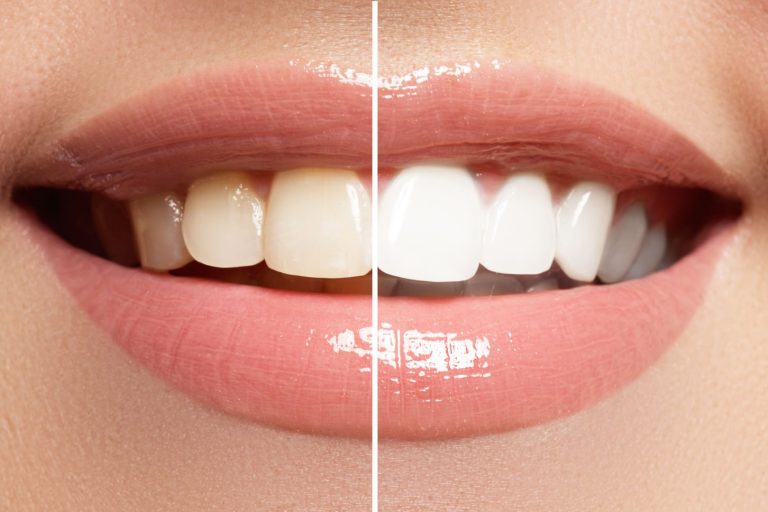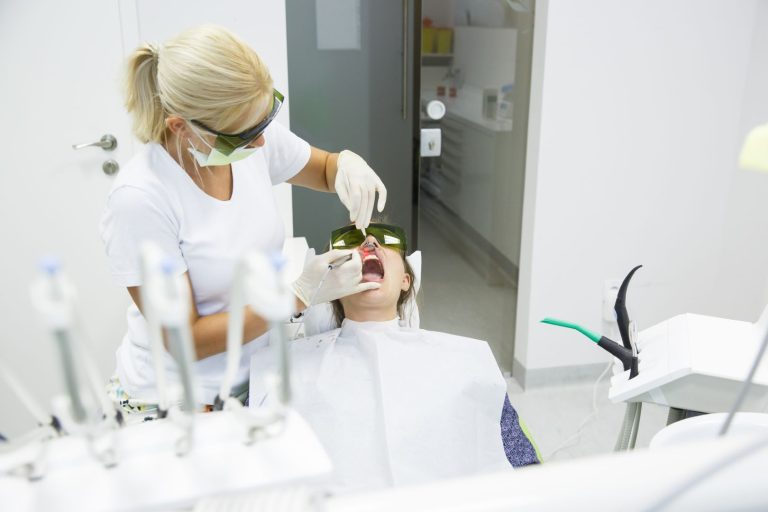Taking care of your teeth is more than just brushing and flossing—regular dental checkups are essential for keeping your smile healthy and bright. But life gets busy, and it’s easy to let those dental appointments slide. So, how do you know it’s time to call your dentist? Here are seven signs that you’re overdue for a dental checkup.
1. Tooth Pain or Sensitivity
Tooth pain or sensitivity can make eating and drinking a challenge. Whether it’s a sharp pain or a dull ache, it’s not something to ignore.
Common Triggers of Pain or Sensitivity
- Cavities or deep decay.
- Worn enamel exposing sensitive layers of the tooth.
- Gum recession exposing the tooth root.
Why You Shouldn’t Ignore It
Pain or sensitivity might be a sign of something serious, like a cavity, infection, or even the need for a root canal. Waiting too long can lead to more extensive (and expensive) treatments. A quick visit to your dentist can provide relief and prevent the problem from worsening.
2. Bleeding Gums While Brushing or Flossing
Do your gums bleed when you brush or floss? While it might seem minor, bleeding gums are often a sign of gum disease, which can progress if untreated.
What It Means
- Early-stage gum disease (gingivitis).
- Plaque or tartar buildup along the gumline.
- Potential progression to periodontitis, a severe form of gum disease.
How Your Dentist Can Help
A professional cleaning can remove plaque and tartar that you can’t reach with regular brushing. Your dentist or hygienist will also provide guidance on improving your oral hygiene routine to prevent further gum irritation.
3. Stains or Discoloration on Teeth
If your teeth are looking more yellow or stained than usual, it might be time for a dental visit. Discoloration can be caused by everyday habits like coffee or wine consumption, but it could also signal plaque buildup.
Causes of Stains
- Consuming staining foods and drinks like tea, coffee, and red wine.
- Smoking or chewing tobacco.
- Inadequate oral hygiene.
Professional Teeth Cleaning and Whitening
Your dentist can restore your smile’s natural brightness with a professional cleaning or whitening treatment. Plus, they can provide tips for keeping stains at bay in the future.
4. Dry Mouth (Xerostomia)
A dry mouth might seem like a minor inconvenience, but it’s a common issue that can have big implications for your oral health.
Why It Matters
Saliva plays a crucial role in protecting your teeth and gums. It helps wash away food particles and neutralize acids that can cause cavities. When saliva production is low, your mouth becomes more vulnerable to decay and gum disease.
How Dentists Can Address Dry Mouth
Dentists can recommend fluoride treatments, special mouthwashes, or even dietary changes to alleviate dry mouth. They may also identify underlying causes, such as medications or health conditions.
5. Persistent Bad Breath (Halitosis)
We’ve all experienced bad breath after eating certain foods, but persistent bad breath that doesn’t go away with brushing or mouthwash is a red flag.
What Causes Persistent Bad Breath?
- Plaque and bacteria buildup in your mouth.
- Gum disease or tooth decay.
- Dry mouth (xerostomia) or other underlying health issues.
Why a Dental Checkup Can Help
A professional cleaning can remove the bacteria that causes bad breath. Additionally, your dentist can identify any gum disease or cavities contributing to the issue. Tackling the problem early can save you from embarrassment and more serious dental problems down the road.
6. Loose or Shifting Teeth
Your adult teeth are meant to stay put, so if you notice that a tooth feels loose or your bite seems different, it’s a sign to visit a dentist ASAP.
Potential Causes
- Gum disease weakening the bone that holds your teeth in place.
- Teeth grinding (bruxism) or jaw trauma.
- Undiagnosed infection or decay.
Early Intervention Is Key
If caught early, your dentist can treat the underlying issue, whether it’s gum disease, bruxism, or another cause. In some cases, a custom mouthguard can protect against grinding and prevent further damage.
7. It’s Been More Than Six Months Since Your Last Visit
Even if you’re not experiencing any obvious issues, regular checkups are vital for maintaining a healthy smile.
Why Six Months Is the Gold Standard
Dental visits every six months allow your dentist to:
- Clean away plaque and tartar that brushing can’t remove.
- Catch small problems before they become major concerns.
- Monitor your overall oral health, including gums and jaw alignment.
Risks of Skipping Dental Checkups
When you delay or skip checkups, you’re more likely to face bigger issues later, like cavities, gum disease, or even tooth loss. Preventative care is always more cost-effective and less invasive than reactive treatments.
How to Make Scheduling a Dental Visit Easier
If it’s been a while since your last checkup, you’re not alone! Many people put off visiting the dentist due to busy schedules, dental anxiety, or cost concerns. Here are some tips to make it easier:
- Find the Right Dentist: Look for a dentist who takes the time to explain treatments and makes you feel comfortable.
- Set Reminders: Schedule your next appointment at the end of your visit and set a calendar reminder.
- Ask About Payment Plans: Many dental offices offer financing options to make care more affordable.
- Bring Entertainment: If you feel anxious, bring headphones and listen to music or a podcast during your cleaning.
Conclusion
Taking care of your teeth is about more than just appearances—it’s about maintaining your overall health and well-being. If you’ve noticed any of these signs or if it’s been more than six months since your last visit, don’t wait! Schedule your dental checkup today and take the first step toward a healthier, happier smile.




